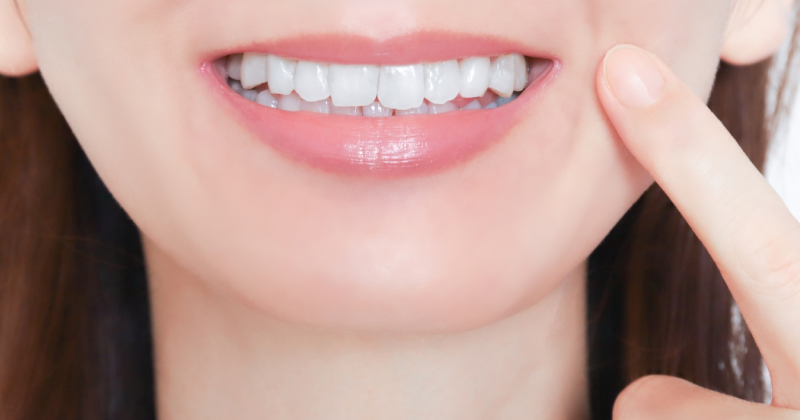Teeth Whitening – A comprehensive Guide to whiter teeth

Contents
Sparkling, white teeth are often associated with confidence, health, and even success. As a result, teeth whitening has become a booming industry, with a plethora of options promising pearly whites. But before you embark on this journey, it’s important to understand both the benefits and potential drawbacks of teeth whitening. Let’s delve into the dazzling world of brighter smiles by exploring the different techniques, their effectiveness, and the considerations involved.
Unveiling the benefits: Why we whiten
Beyond aesthetics, teeth whitening offers several benefits:
- Increased confidence: A brighter smile can boost self-esteem, promoting better social interactions and a more positive self-image. Studies have shown a correlation between whiter teeth and increased perceived attractiveness and career success.
- Improved oral health: Some whitening methods, such as professional treatments, can also remove surface stains caused by tobacco, coffee and tea, contributing to better oral hygiene.
- Improved smile perception: Whiter teeth can make your smile appear wider, younger and healthier, improving your overall appearance.
- Treatment of stains: For individuals with naturally yellow teeth or discoloration from medications such as tetracycline, whitening can address these concerns and reveal a more natural tooth color.
Demystifying the Methods: A look at your whitening options
There are several ways to achieve a whiter smile, each with its pros and cons:
- Over-the-counter (OTC) products: Toothpastes, strips, gels and rinses are readily available and affordable. However, their whitening effect is typically slower and milder than professional methods. Sensitivity and gum irritation are possible side effects.
- Home whitening kits: These dentist-prescribed kits provide custom trays for applying bleaching gels. They offer a middle ground between OTC and professional treatments in terms of effectiveness, cost, and sensitivity risk.
- Professional whitening: In-office treatments under the supervision of a dentist offer faster and more dramatic results using concentrated whitening agents. The cost is generally higher and temporary sensitivity is more common.
The Road to Brilliance: Choosing the right whitening method
Choosing the best whitening method depends on your individual needs, budget, and sensitivity:
- Mild discoloration: For mild stains, OTC products such as whitening toothpaste or strips may be sufficient.
- Moderate discoloration: For faster results, consider dentist-supervised treatments, either in-office or at-home kits.
- Severe stains: For significant stains or deep discoloration, professional in-office bleaching is recommended.
Sensitivity – a real concern for many:
At Toranomon Hills Dental Medical Ryu Clinic, we take you concerns to heart. If you have sensitive teeth, feel free to discuss your options with us. It is always a case-by-case decision, but we might suggest for example desensitizing treatments before whitening or recommend gentler methods such as at-home kits with lower concentrations of bleaching agents.
Shedding light on potential concerns:
While teeth whitening generally offers safe and effective results, it’s important to consider the potential downsides:
- Sensitivity: Increased tooth sensitivity is a common side effect, especially with professional treatments. A desensitizing toothpaste or gel can help alleviate this discomfort.
- Gum irritation: Some people experience temporary gum irritation, especially with prolonged use of OTC products.
- Uneven whitening: Existing crowns or fillings may not whiten to the same degree as natural teeth, resulting in an uneven appearance.
- Enamel erosion: Overuse of certain whitening methods, especially abrasive OTC products, can erode tooth enamel.
- Tooth damage: Improper use of some methods can damage teeth, making them more susceptible to cracking and chipping.
Keeping the sparkle: Keeping Your Smile Bright
To make sure your newfound glow lasts, follow these tips:
- Maintain good oral hygiene: Brush and floss regularly to prevent new stains and maintain overall oral health.
- Limit stain-causing foods and beverages: Coffee, tea, red wine, and tobacco can stain your teeth. Drink them in moderation and rinse out your mouth with water.
- See your dentist regularly: Regular dental checkups ensure optimal oral health and allow your dentist to monitor the effects of whitening treatments.
- Use tooth whitening products responsibly: Follow the recommended duration and frequency of use for each method to avoid potential damage.
The final flash: a brighter you
Teeth whitening can be a safe and effective way to achieve a dazzling smile, boost your self-confidence and contribute to your overall well-being. By understanding the benefits and potential drawbacks, choosing the right method, and practicing good oral hygiene, you can embark on your whitening journey with informed confidence and light your way to a brighter you. Remember, a naturally healthy smile is always the most beautiful, so prioritize oral health along with whitening for a smile that truly shines.
At Toranomon Hills Dental Medical Ryu Clinic, we are here to help you smile. Feel free to contact us about your options and the best treatment for you. We look at every patient individually and decide together on the appropriate treatment to achieve your true smile.




